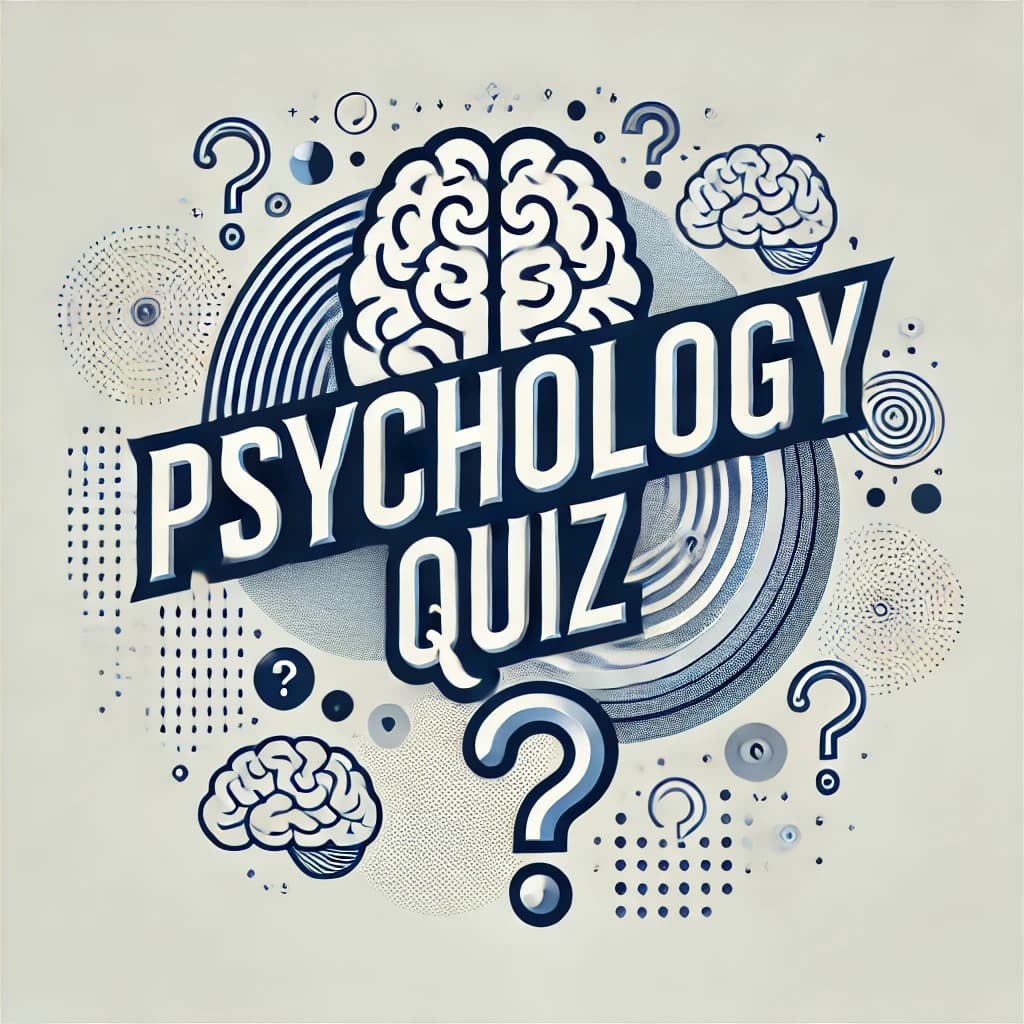This section contains all of the questions that could be a part of this quiz. The quiz will choose 15 random questions from the pool below. If you've found this section feel free to take a look but to start the quiz you should press "Start Quiz". You may also be thinking that when a psychologist asks you about your mother and 4 options are given, only the correct interpretation will appear below. This is because this supplemental information is about the quiz itself and not intended as a comprehensive list. We hope you found the quiz to be entertaining and informative. If you haven't taken it yet, Good Luck!
Q1: Who developed classical conditioning theory?
A1: Ivan Pavlov
Q2: Which parts are in Freud's structural model of the psyche?
A2: Id, Ego, Superego
Q3: Which part of the brain is primarily responsible for memory formation?
A3: Hippocampus
Q4: Match each psychological perspective with its main focus.
A4: Behavioural - Observable actions, Cognitive - Mental processes, Humanistic - Self-actualisation
Q5: What term describes a relatively permanent change in behavior due to experience?
A5: Learning
Q6: Arrange Piaget's stages of cognitive development from earliest to latest.
A6: Sensorimotor stage, Preoperational stage, Formal operational stage
Q7: Which neurotransmitter is most associated with pleasure and reward?
A7: Dopamine
Q8: Which defence mechanism involves attributing thoughts to others?
A8: Projection
Q9: What are the characteristics of authoritarian parenting?
A9: Strict rules, High demands, Limited warmth
Q10: Match psychological theories with their key concepts.
A10: Gestalt - Whole is greater than parts, Psychodynamic - Unconscious drives, Existential - Search for meaning
Q11: What concept describes better remembering of unfinished tasks?
A11: Zeigarnik effect
Q12: Which therapeutic approach emphasizes unconditional positive regard?
A12: Person-centred therapy
Q13: Arrange Maslow's hierarchy of needs from most basic to most advanced.
A13: Physiological needs, Safety needs, Self-actualisation
Q14: Which are examples of cognitive biases?
A14: Confirmation bias, Anchoring bias, Availability heuristic
Q15: Who developed the concept of collective unconscious?
A15: Carl Jung
Q16: What are examples of positive reinforcement?
A16: Receiving praise, Getting a bonus, Earning extra privileges
Q17: Match attachment styles with their characteristics.
A17: Secure - Trusts others easily, Anxious - Fears abandonment, Avoidant - Values independence
Q18: Which theory suggests we are influenced by both personal and environmental factors?
A18: Social cognitive theory
Q19: What term describes conforming to social pressure despite knowing better?
A19: Normative social influence
Q20: What are characteristics of intrinsic motivation?
A20: Personal enjoyment, Natural curiosity, Internal satisfaction
Q21: Arrange Tuckman's group development stages from earliest to latest.
A21: Forming, Storming, Performing

